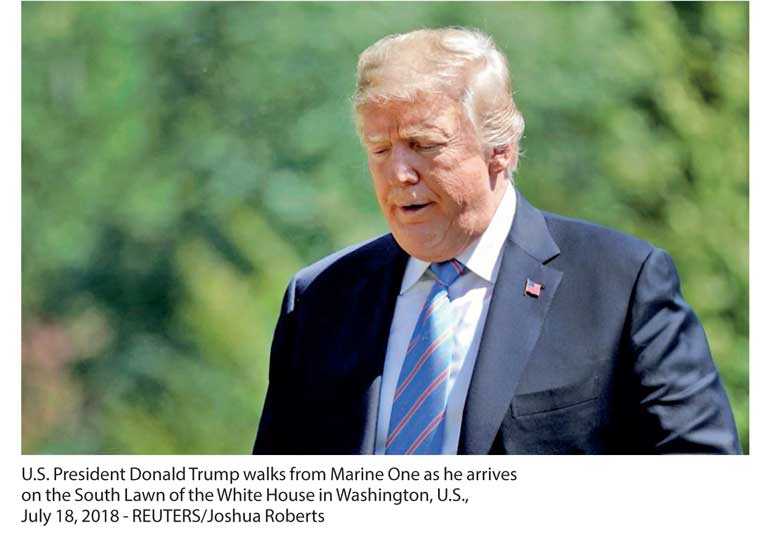Thursday Feb 26, 2026
Thursday Feb 26, 2026
Friday, 20 July 2018 00:00 - - {{hitsCtrl.values.hits}}
 WASHINGTON (Reuters) - U.S. President Donald Trump said on Wednesday that European leaders were coming to Washington next week to try to hammer out a deal focused largely on car tariffs, while his top economic adviser accused Chinese President Xi Jinping of holding up a U.S.-China trade deal.
WASHINGTON (Reuters) - U.S. President Donald Trump said on Wednesday that European leaders were coming to Washington next week to try to hammer out a deal focused largely on car tariffs, while his top economic adviser accused Chinese President Xi Jinping of holding up a U.S.-China trade deal.
Trump, speaking to reporters at the White House, said that European Commission President Jean-Claude Juncker’s visit will discuss car tariffs, which he cited as “the big one” among U.S.-EU trade irritants.
Trump considers the EU’s 10% tariff on cars to be unfair compared to the U.S. 2.5% tariff, although the United States maintains a 25% tariff on pickup trucks.
“They’re going to be coming on 25 July to negotiate with us. We said if we don’t negotiate something fair, then we have tremendous retribution. Which we don’t want to use, but we have tremendous powers,” Trump said.
Trump has threatened to levy higher tariffs, as much as 25% on imported cars, and his Commerce secretary, Wilbur Ross, is conducting a study on whether vehicle and parts imports threaten national security.
Larry Kudlow, who heads the White House Economic Council, said separately at an investment forum in New York that he has been told that Juncker would be “bringing a very important free trade offer” to Trump on his visit.
Kudlow said he believed Xi has blocked progress on a deal to end dueling U.S. and Chinese tariffs. He added that lower-ranking officials want a deal, including Xi’s top economic adviser Liu He, but Xi has refused to make changes to China’s technology transfer and other trade policies.
“So far as we know, President Xi, at the moment, does not want to make a deal,” Kudlow said at the Delivering Alpha conference sponsored by CNBC and Institutional Investor magazine.
“I think Xi is holding the game up. I think Liu He and others would like to move but haven’t,” Kudlow said. “We are waiting for him (Xi). The ball is in his court.”
China could end U.S. tariffs “this afternoon by providing a more satisfactory approach” and taking steps that other countries are also calling for, he said.
These included cutting tariff and non-tariff barriers to imports, ending the “theft” of intellectual property and allowing full foreign ownership of companies operating in China, Kudlow said.